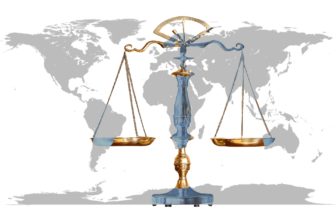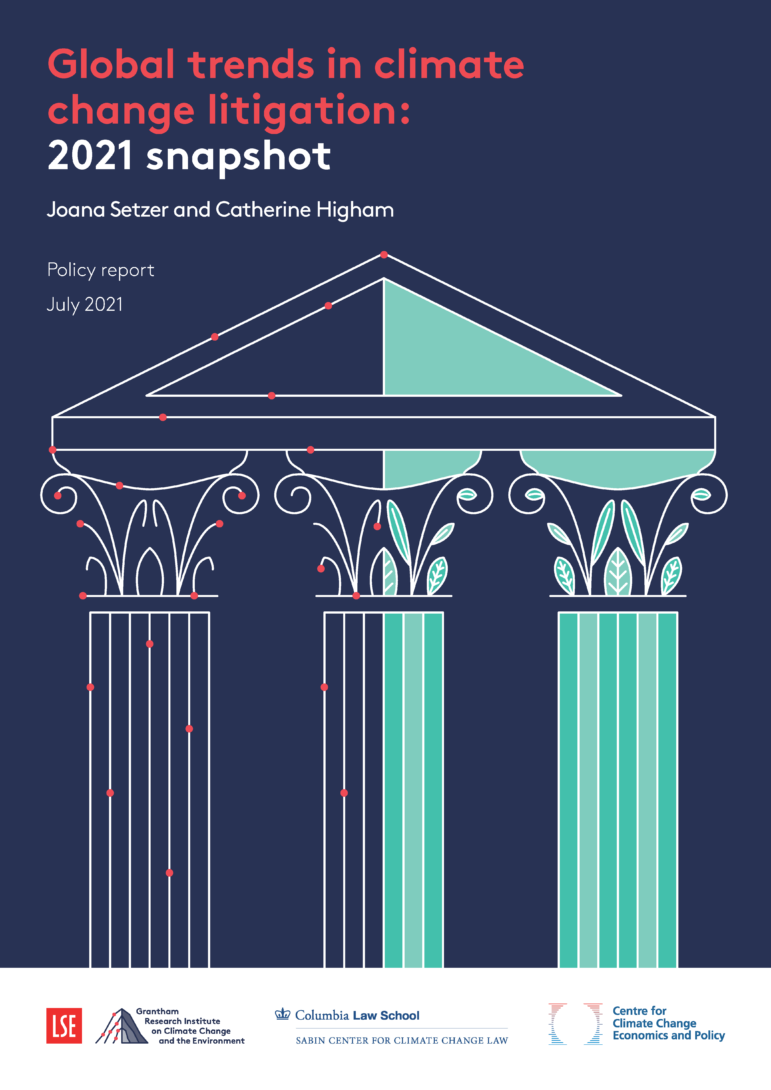TWH – Protecting the planet from climate change will require many tools. Some will be spiritual, some will be political. This article explores some legal tools being utilized for protecting the planet.

Image credit: Mona Tootoonchinia from Pixabay
In the last six years, the use of climate change related lawsuits has increased greatly. Between 1986 and 2014, lawyers filed 800 climate change lawsuits, for an average of 28.6 lawsuits per year. However, in just the span of six years, 2015 to 2021, lawyers filed over 1000 climate change lawsuits. At the minimum, an average of 166.7 lawsuits per year.
While not all of those lawsuits were aligned with climate mitigation goals, about 58% of those lawsuits resulted in rulings that helped to mitigate climate change, while 32% had negative outcomes. Roughly 10% of rulings had no impact on climate change mitigation policies.
Earlier this year, a report titled, “Global trends in climate change litigation: 2021 snapshot,” written by Joana Setzer and Catherine Higham, analyzed climate change related lawsuits.
The report was first published in July 2021 by the Grantham Research Institute on Climate Change and the Environment and the Centre for Climate Change Economics and Policy.

The report examined active climate change lawsuits from May 1, 2020, to May 31, 2021. These lawsuits occurred in 39 countries and 13 regional courts/tribunals. Most lawsuits, 1,387, occurred in the US. An increasing number of these lawsuits are being filed in the Global South. For the first time, climate change related lawsuits occurred in Guyana, Taiwan, and the East African Court of Human Rights.
Setzer and Higham described three waves of climate change related lawsuits. The first wave lasted until 2007. In that wave, most climate lawsuits focused on raising environmental standards. They targeted mostly administrative lawsuits against governmental bodies. These lawsuits primarily occurred in the US and Australia.
The second wave occurred from 2007 to 2015. In that wave, climate lawsuits had spread to Europe. Climate change lawsuits filled the gap left by that the failure of international agreements to plausibly mitigate climate change.
The third wave began in 2016 and continues to the present. In this wave, lawsuits have become more diverse. They have also expanded in “the type of claim[s], the volume of lawsuits, the type of defendants, and the number of jurisdictions in which lawsuits are being brought.”
Types of Lawsuits
The label “climate change related lawsuits” covers many different types of lawsuits. Setzer and Higham identified several different types. These types are not mutually exclusive but illustrate the breadth of climate lawsuits.
One type of lawsuit involves “systematic mitigation.” Those lawsuits aim “to bring about some broader societal shift.” The issues in these lawsuits go beyond the specifics of any given lawsuit and have the goal of setting precedents. They seek to advance climate policies, create public awareness, or change the behavior of specific governments or corporations.
Within the broad category of systemic mitigation, Setzer and Higham identified two sub-types. In one, lawsuits challenge the adequacy of actions or non-actions by governments. Setzer and Higham found 37 of these types of lawsuits around the world. The number of these lawsuits has been increasing.
The other sub-type challenges governmental authorization of third-party activities. They found 25 of these types of lawsuits. These lawsuits challenge the approval processes for fossil-fuel intensive projects, like coal mines.
Another type of lawsuit challenges “financial risks, fiduciary duties, and corporate due diligence.” These lawsuits frequently challenge fossil fuel and cement companies. They could also target asset managers, banks, insurers, and pension funds. This type of lawsuit has focused on deliberate disinformation, and the “failure to disclose and manage climate change risk.” These lawsuits directly challenge the belief that climate change mitigation policies threaten economic well-being. Instead, the lawsuits seek to turn the narrative on its head. In their arguments, these suits show that failure to mitigate climate change threatens economic well-being.
Any major change will have costs. Another type of lawsuit, a “just transition” lawsuit. This type of litigation raises the question of who bears the burden of climate change mitigation. Climate change mitigation will come with some short-term costs and dislocations. These include job losses and adapting to new types of energy, among other problems. In just transition lawsuits, climate change mitigation intersects human rights and equity issues.
Outcomes
The BBC reported on the ruling of the German high court in May 2021. The court found that Germany had failed to protect its future generations. Under that ruling, Germans have to change their climate protection act, requiring them to further reduce CO2 emissions.

Image credit: Pixabay
The BBC reported that Roda Verheyen, a German environmental lawyer, said that the legal environment has changed. The evidence for human-caused climate change has become stronger. As a result, it has become easier to win these lawsuits in court.
Verheyen is now suing German automobile companies, BMW, Mercedes-Benz, and Volkswagen. That lawsuit attempts to force those companies to phase-out combustion engines by 2030. It argues that this phase-out is needed to align with the goals of the Paris Climate Agreement of 2015. Verheyen sees the finance sector, land use, and forest issues to be areas with the greatest potential for successful climate change related lawsuits.
The lawyers involved in these lawsuits see their work as one tactic among many. Other tactics include activism, policy change, and science.
Legal systems are country-specific. Legal challenges that succeed in one country may not succeed in another. For some countries, a structural barrier exists to making use of legal strategies.
The BBC reported activists frequently lack the resources to sue corporations and governments that have deep pockets to defend themselves. Sebastian Bechtel, a lawyer at the NGO, Client Earth, said “A lot of countries do not want to bring these claims.”
Bechtel distinguished between the Global North and the Global South. He said that in some countries, “It’s simply not possible to go to court to enforce specific laws.”
The Wild Hunt is not responsible for links to external content.
To join a conversation on this post:
Visit our The Wild Hunt subreddit! Point your favorite browser to https://www.reddit.com/r/The_Wild_Hunt_News/, then click “JOIN”. Make sure to click the bell, too, to be notified of new articles posted to our subreddit.
